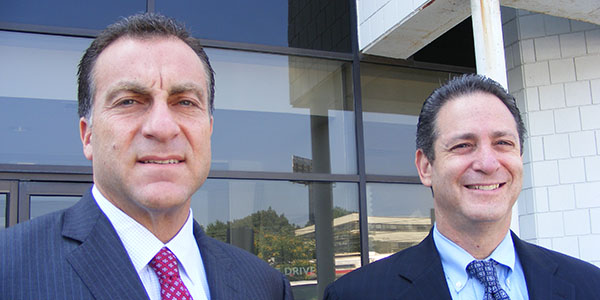Grown in New Rochelle, a national health care success

Marc E. Koch was a medical resident with business acumen at Yale University School of Medicine when in 1995 he began to “look at the next paradigm” in health care, he said recently at his office at Somnia Inc. in New Rochelle.
Hospitals had begun to decentralize their services and the market for ambulatory surgery ”“ procedures that avoided the cost of hospital stays for patients ”“ was about 10 years old. Koch, an anesthesiologist, realized that third-party health care payers would offer incentives for more cost-efficient practices.
To him it seemed that performing some surgeries in surgical centers and hospital venues “was wasteful. It wasted crucial government dollars.” Those services of surgeons and anesthesiologists could be brought into doctors”™ offices at lower costs.
“So our company was born,” said Koch, who is president and CEO and a co-owner of Somnia Anesthesia. The company has 76 employees at its headquarters at 10 Commerce Drive in downtown New Rochelle.
In the residency program at Yale, Koch found a like-minded medical and business partner in Robert C. Goldstein, Somnia”™s chief medical officer and executive vice president. They formed their anesthesia practice management company in 1996.
“We wrote a business plan while on call at the hospital in our down time,” Koch said. “We got $5,000 from Rob”™s parents and $5,000 from my grandparents and here we went.”
In the early years, Koch in his scrubs went by bus to doctors”™ offices in New York City. “I spent most of my time providing peripatetic anesthesia,” he said. Plastic surgeons and podiatrists were mainstay clients at the start.
There were formidable obstacles to clear before their novel practice took off. “Nobody would give us malpractice” liability insurance, Koch recalled. “No insurance companies would give us health insurance for our fledgling company. No billing company would take us on.” Payers refused to meet with them. The partners developed a manual to show companies what they were doing in their office-based, cost-saving practice.
“One by one, we knocked down all the encumbrances and created marketplace infrastructure,” Koch said. In 1997, Somnia was the first anesthesiology practice to be accredited by the Accreditation Association for Ambulatory Healthcare.
When Medicare officials in the late ”™90s began to offer a site-of-service payment differential for office surgeries, the anesthesiologists”™ business “took off,” Koch said.
By 2000, though, he worried that the changing market could turn against their growing business. Payers might decide that office surgeries did not require anesthesia and surgeons might add in-house anesthesia services. Lack of oversight in the office venue could give the industry a black eye, he worried.
“Back then, quality management was not what it is today,” said Koch. “We had to think strategically about quality.”
In the tristate region, “Surgery centers and hospitals began to take notice of what we were doing in the office-space surgeries and began to call us.” The partners developed “version 2.0” of their business plan, focusing on surgery centers as their new target clients.
“The surgery center model worked very, very well. We got many surgery centers,” Koch said.
Somnia”™s founders decided to launch nationally. From 2000 to 2001, the New Rochelle company began its national rollout, offering a “one-stop solution” that provided both clinical and administrative anesthesiology services and recruited physicians locally. Somnia soon gained surgery centers in Pennsylvania, Kentucky and New York as clients. “We were very successful at that,” said Koch, who obtained an M.B.A. in finance and marketing from the Fordham University School of Business during the company”™s national launch.
“We”™re not vampires,” he said. “We don”™t go in and try to take contracts” from other providers. “We come in because there”™s oftentimes been issues with anesthesia” at a client facility.
“Our method is really to work with hospitals and anesthesia providers that need that formality and infrastructure” offered by Somnia “and take what is good and make it better” both in quality of care and cost efficiency.
Doing all of its professional recruiting internally, Somnia has built a network that includes 310 anesthesiologists and registered nurse anesthetists in about 15 states. The company”™s largest client base, including several hospitals, is on the West Coast, following by the East Coast and the Midwest.
“Since our national rollout, we”™ve typically gone to one or two new ones a year,” said Koch. “That”™s comfortable for us.”
Founders Koch and Goldstein remain the fast-growing company”™s sole owners. “We don”™t have an investment banker looking over our shoulder,” said Koch. “We can take risks.”
“In the (health care) marketplace, there”™s been a huge influx of private equity,” he said. “We”™re beholden to the patients and anesthesiology (clients) and hospitals that we serve and not to a boardroom with guys in ties,” Koch said.
Their business plan in its evolving versions has proven profitable. In July, Modern Healthcare magazine named Somnia Anesthesia to its Healthcare”™s Hottest list as one of the 40 fastest-growing U.S. companies with at least $20 million in revenue in 2011.
In June, Crain”™s New York Business ranked Somnia 26th on its Fast 50 list of the fastest-growing companies in the metropolitan area. Somnia had a three-year growth rate of 82 percent and $74.2 million in revenue in 2011.
“We”™ve seen remarkable growth,” said Koch. “To be succinct, people trust us.”